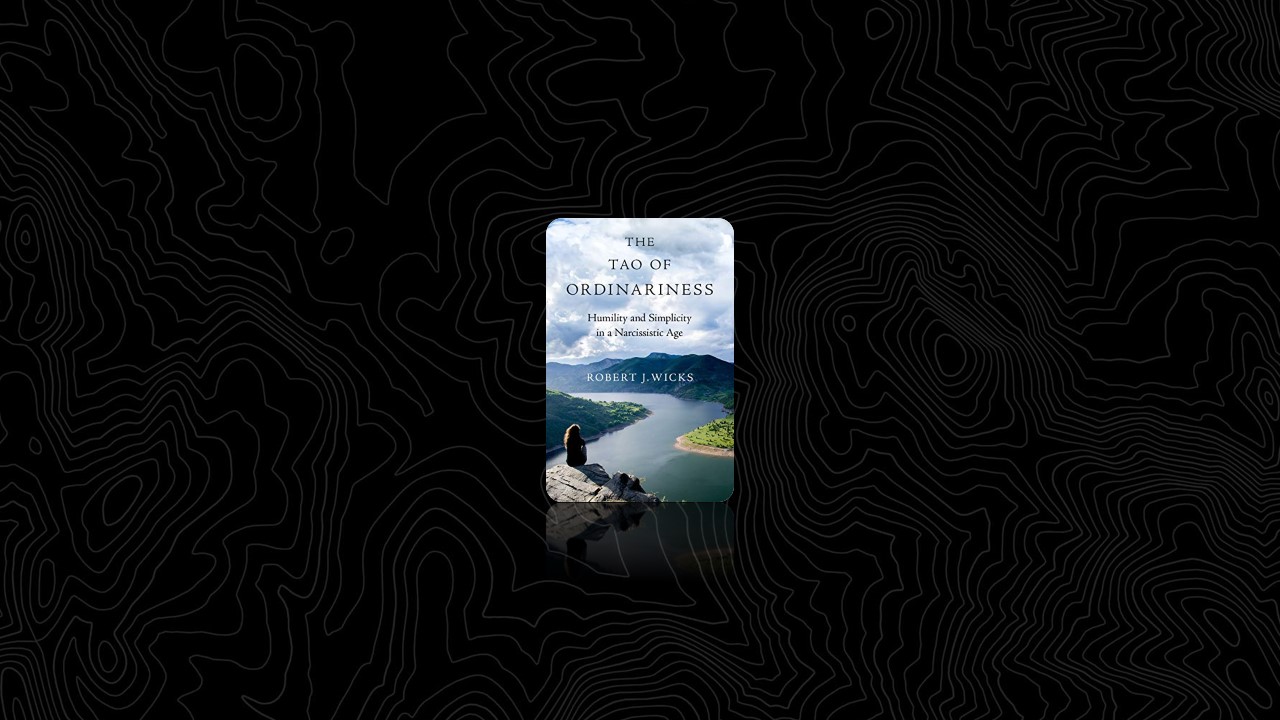Gateways to Ordinariness
Ordinariness is an attitude or stance that allows persons to explore and be intrigued by current realities and possibilities within themselves. It is marked by a comfort with oneself that leads to appropriate transparency. Essential aspects of enhancing the understanding and expression of personal ordinariness also include the courage to confront unhelpful external influences (even by those who purport to have one’s best interests at heart); the true humility to honor one’s talents while clearly and gently viewing shortcomings in an honest, nonjudgmental fashion; and a willingness to embrace and model a lack of egoism in one’s interpersonal relations in ways that would encourage personal freedom in others and thus to become more fully themselves as well.
An Elusive Companion Virtue: Humility
Humility has always been a very elusive virtue. It is impossible to seek it directly. To make matters worse, like its close relative, ordinariness, it also no longer seems valued or desirable in much of contemporary society. Today, especially in the public eye, it is not only ignored, it is shunned. At football games, unlike in the past when players got visibly excited—almost in a surprised way—when a play went well, now they often seem to go out of their way to seek and show an expectation for adulation from the crowd.
Yet, thankfully, some sports luminaries, even today, still demonstrate humility and prove you don’t need to be exhibitionistic and self-centered when stardom touches your life. One example of this is Katie Ledecky, who is arguably one of the greatest—and certainly most decorated—swimmers of our time. This sense of modesty was shown at a Pro Series meeting when the then twenty-year-old multi–gold medalist took the time to introduce and praise a seventy-three-year-old gold medalist, Chris Olmsted, who came before her and had achieved so much.
Travel Lightly: Simplicity and Letting Go
If ordinariness is a forgotten virtue and humility an elusive one, simplicity is certainly one that is wistfully viewed as surprisingly unattainable or impractical in modern life. Today, many of us tend to seesaw between envying those who live a simple life on the one hand and feeling it would be quite easy “if only” our life didn’t have so many responsibilities on the other.
Despite this sense of simplicity as an unattainable dream, there are persons with very full, demanding and complex lives who see simplicity as an underlying attitude to behold and embrace, no matter how many challenges face them. Once again, Pico Iyer notes this with respect to the current Dalai Lama:
He really does live simply, decorating his bedroom when he travels with just a few pictures of his teachers and his family and a portable radio. He really is a full-time, lifelong student of the Buddha, who taught him that nearly everything is illusory and passing, not least that being who declares everything is illusory and passing. And he really does aspire, as every monk does, to a simplicity that lies not before complexity but on the far side of it, have not dodged experience but subsumed it.
As is especially the case with respect to humility, being ordinary without embracing simplicity is almost impossible.
The Unrecognizable You: Addressing the Reputation You Currently Have with Yourself
A healthy sense of self is essential for embracing our ordinariness. It is based on what William Appleton referred to as “the reputation you have with yourself.” And so, two natural questions this proffers are: How did I get this reputation, and are the beliefs upon which it is based accurate?
Addressing these questions is crucial in discerning what is our true face. Our response to them can determine how we might lead the rest of our lives. If the questions remain unaddressed or unanswered, though, we may well end up journeying through life on automatic pilot dictated by unexamined and possibly inaccurate beliefs or unconscious “voices” from our past as well as early and present societal dictates. They may not actually tell us the whole truth about ourselves but instead put us in a position to mimic others, rely too heavily on the reflection of self from those around us, or simply be the response to a desire to fit in with societal norms.
Becoming “Sea-Kindly”: Living with Greater Patience, Perseverance, and a Willingness to Fail
to be our ordinary self requires a sense of honesty akin to riding the dragon. Mounting the dragon requires patience, perseverance, and a willingness to fail. This outlook involves both great courage and a willingness to be authentic. It values remaining in touch with our real self and is best fostered by a milieu that enhances a trust that such genuineness will be accepted, encouraged, and embraced by a significant other in the past or the present.
With his emphasis on professional helpers using their own authenticity as part of the healing process, Sidney Jouard broke new ground in the mid-1960s with the publication of his book The Transparent Self
it still remains an important work because of some of the key reflections that seem to recognize the importance and difficulty of embracing ordinariness. One such comment of his is as follows:
A choice that confronts every one at every moment is this: Shall we permit our fellows to know us as we are now, or shall we remain enigmas, wishing to be seen as persons we are not? . . .
We camouflage our true being before others to protect ourselves against criticism or rejection. This protection comes at a steep price. When we are not truly known by other people in our lives, we are misunderstood. When we are misunderstood, especially by family and friends, we join the “lonely crowd.” Worse, when we succeed in hiding our being from others, we tend to lose touch with our real selves. This loss of self contributes to illness in its myriad forms.
Mentors in Ordinariness: Experiencing Authenticity in Practice
In confronting a young man who she was fond of but who was not responsive in the way she had hoped, poet Edna St Vincent Millay said, “There is no shelter in you anywhere.” The exact opposite of this is “the mentor of ordinariness” who is present to us in ways that awake, support, inspire, and enable a healthier perspective. Such a guide truly believes in the Cameroonian proverb:
If you wish to go fast, go alone.
If you wish to go far, go together.
Zen master Shunryu Suzuki advised those seeking a mentor or spiritual guide to seek to meet someone as sincere as themselves.2
In the search for our ordinary selves, we often find it necessary to enlist the help of others who have already done the work necessary to “simply” find and be themselves. Such mentors or wise figures don’t ask us to impersonate them but instead to have the patience and courage, as previously discussed, to find our own map to explore our ordinary selves.
Alonetime: Embracing Spaces Conducive to the Process of Self-Uncovering and Re-Discovering
The capacity to be alone certainly is also seen today as an aspect of emotional maturity. British psychiatrist Edwin Storr suggests no less in his book Solitude: A Return to the Self. Relying on the psychoanalytic thinker Donald Winnicott, who was one of the first modern psychological thinkers to discuss the positive aspects of solitude, he notes the connection between the capacity to be alone and such essential processes as self-discovery and self-realization. He goes on to say that meditation (or silent prayer for religious persons), for example, can
facilitate integration by allowing time for previously unrelated thoughts and feelings to interact.
Being able to get in touch with one’s deepest thoughts and feelings, and providing time for them to regroup themselves into new formations and combinations, are important aspects of the creative process, as well as a way of relieving tension and promoting mental health. It appears, therefore, that some development of the capacity to be alone is necessary if the brain is to function at its best and if the individual is to fulfil his highest potential. Human beings easily become alienated from their own deepest needs and feelings. Learning, thinking, innovation, and maintaining contact with one’s inner world are all facilitated by solitude.


